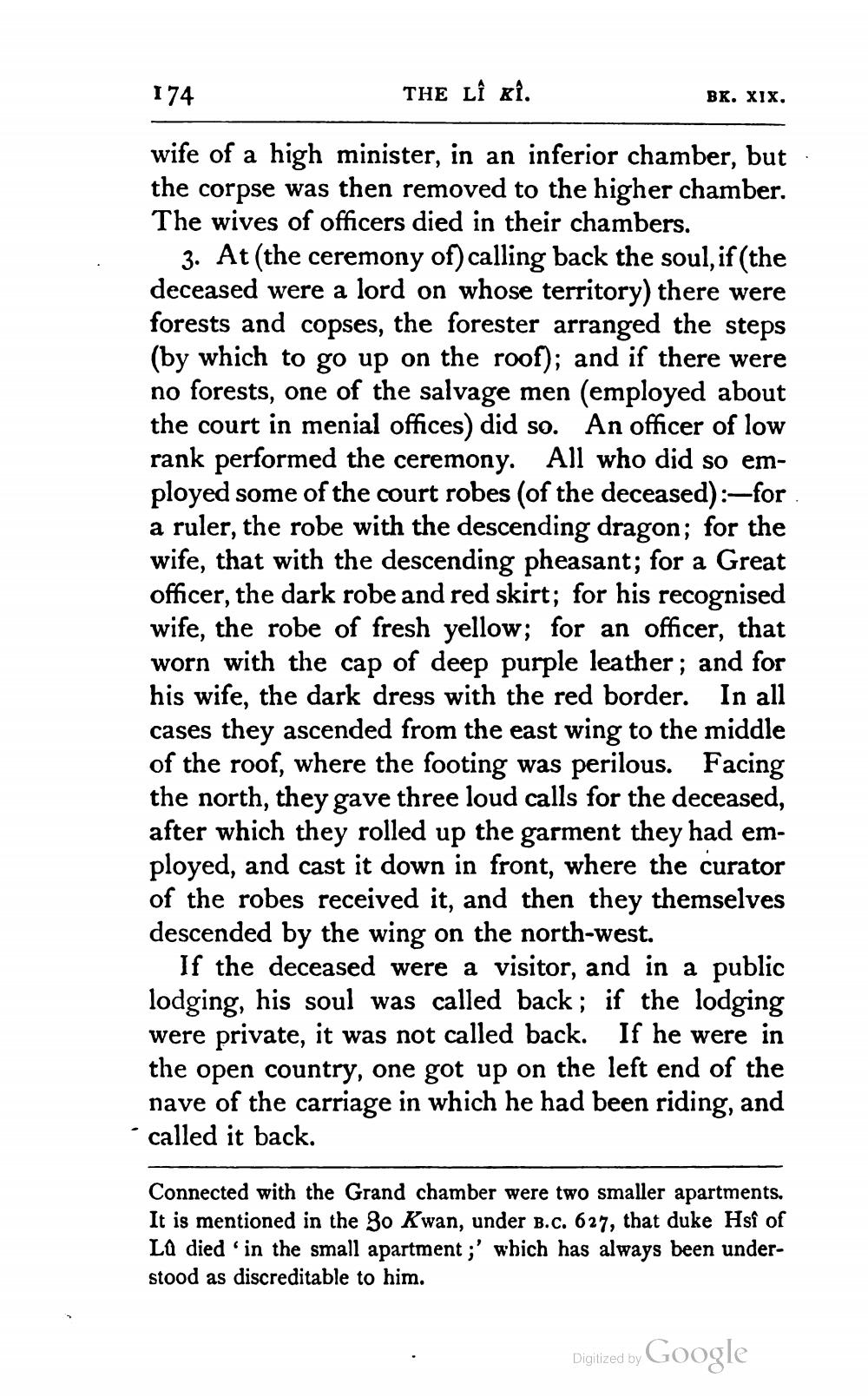________________
174
THE Lî kî.
BK. XIX,
wife of a high minister, in an inferior chamber, but the corpse was then removed to the higher chamber. The wives of officers died in their chambers.
3. At (the ceremony of) calling back the soul, if(the deceased were a lord on whose territory) there were forests and copses, the forester arranged the steps (by which to go up on the roof); and if there were no forests, one of the salvage men (employed about the court in menial offices) did so. An officer of low rank performed the ceremony. All who did so employed some of the court robes (of the deceased) :-for a ruler, the robe with the descending dragon; for the wife, that with the descending pheasant; for a Great officer, the dark robe and red skirt; for his recognised wife, the robe of fresh yellow; for an officer, that worn with the cap of deep purple leather; and for his wife, the dark dress with the red border. In all cases they ascended from the east wing to the middle of the roof, where the footing was perilous. Facing the north, they gave three loud calls for the deceased, after which they rolled up the garment they had employed, and cast it down in front, where the curator of the robes received it, and then they themselves descended by the wing on the north-west.
If the deceased were a visitor, and in a public lodging, his soul was called back; if the lodging were private, it was not called back. If he were in the open country, one got up on the left end of the nave of the carriage in which he had been riding, and called it back.
Connected with the Grand chamber were two smaller apartments. It is mentioned in the 30 Kwan, under B.C. 627, that duke Hss of Lù died in the small apartment;' which has always been understood as discreditable to him.
Digitized by Google




